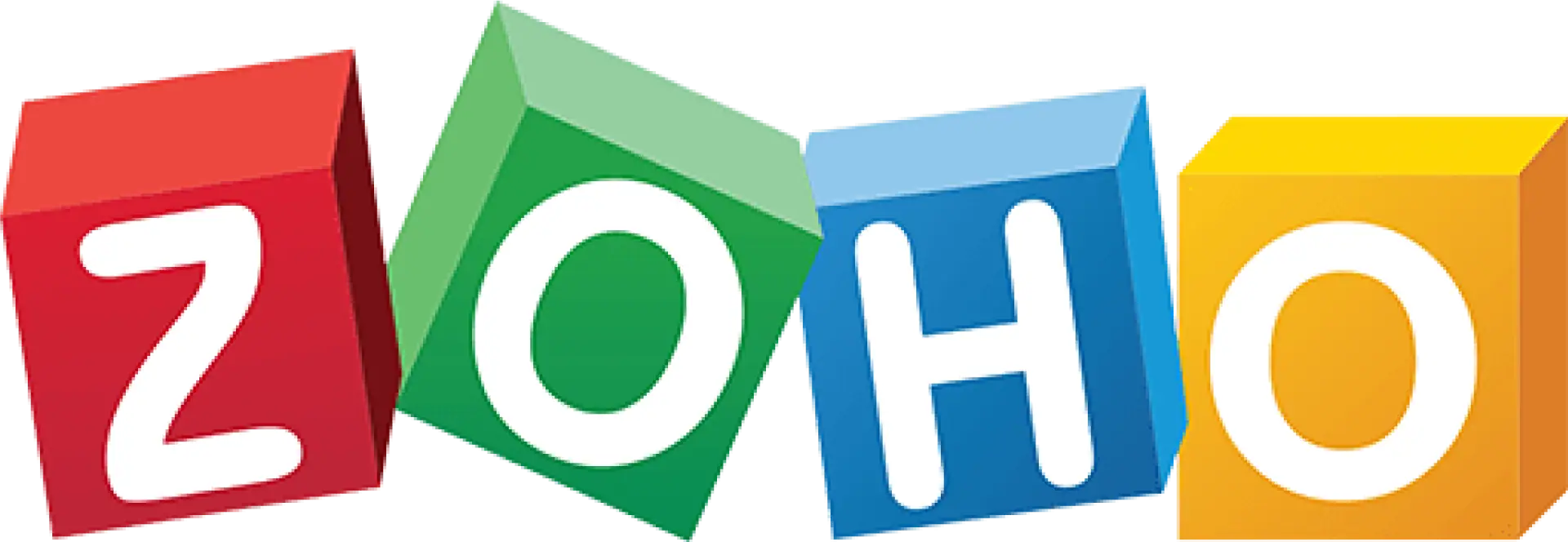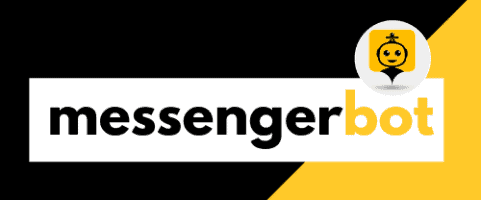So, you’re planning to buy a CRM software for your business, right?
Choosing a CRM can be a daunting task, with so many options available in the market.
A CRM is a software application that businesses use to track customer data. The two most popular are Zoho CRM vs HubSpot. Both have their pros and cons, but which one is the best for your needs? In this post, we will compare the two to help you make an informed decision about which may be better suited for your business!
What Is HubSpot?

HubSpot is a marketing platform that focuses on inbound and content marketing. The CRM is only one part of the entire HubSpot Suite, which includes all kinds of tools like sales software (SalesHub), landing page creator (Page Builder Pro) and blogging platform (MarketingProfs).
The true benefit to using HubSpot is its ability to work as a complete package. HubSpot is great for small and medium businesses who don’t want to pay too much, but still need the tools that other CRMs offer like lead nurturing or customer retention efforts.
What Is Zoho?

Zoho CRM is a web-based customer relationship management tool that helps businesses manage sales, marketing and service activities. The platform allows its users to track leads, collaborate with co-workers, automate business processes and work on customizable reports.
The company’s flagship product was launched in 2005 as an alternative to Salesforce (hence the name Zoho), which was expensive and difficult to use. Zoho CRM is now one of the most popular CRMs on the market, with over 25 million users worldwide.
Features to Look For in a CRM platform – HubSpot CRM vs Zoho CRM
When choosing a CRM platform, it’s important to know which features are most important to your business. Some features are important for every business, while others are specific to certain types of businesses. So the first step is to determine your needs and wants, then begin looking at features that suit those needs/wants. We’re going to compare HubSpot CRM vs Zoho CRM in this article, so let’s take a look some features you might want to consider when making your decision.
Power and Flexibility

Power and flexibility refer to the ability of a CRM system to adapt and grow with your business. A powerful CRM will have all the features you need now, as well as the flexibility to add on modules and integrations as your needs change in the future.
HubSpot is a very powerful CRM, with all the features you need to manage your sales and marketing process. It also has a huge app store, with hundreds of integrations that can be added on as needed.
Zoho CRM is also a very powerful system, with all the features you need to run your business. It doesn’t have quite as many integrations as HubSpot, but it does have a wide range of built-in features that can be customized to your needs.
Which CRM is right for you will depend on your business size and needs. If you need a lot of power and flexibility, HubSpot is the clear winner. If you’re looking for a more affordable system with all the features you need, Zoho CRM is a great option.
Ease of Use and Adoption

A great CRM platform should be easy to use and adopted by your team quickly. The last thing you want is for your team to resist using the CRM because it’s too cumbersome or difficult to learn. With a great platform, your team will be more likely to adopt its use and make the most of its features.
Zoho CRM is known for being very easy to use. The UI is very user-friendly, and you can customize your views based on the type of information that’s important to track for your team or business. With this customizable dashboard feature, it’s easy to see exactly what matters most in one glance – whether it’s sales pipeline progress, deals close rate by rep, or customer service stats.
HubSpot is also known for being easy to use, with a very intuitive UI. It’s designed to be used by people who are not necessarily tech-savvy. And like Zoho CRM, HubSpot offers customizable dashboards that let you track the most important data for your business.
All-on-one Platform

An all-in-one platform is important in a CRM platform because it offers a comprehensive view of all customer data in one place. This allows businesses to more easily spot trends and opportunities, and make better decisions about how to grow their business.
Zoho CRM is an all-in-one platform that offers a comprehensive view of all customer data in one place. It includes features for sales, marketing, customer support, and project management.
HubSpot CRM is also an all-in-one platform that offers a comprehensive view of all customer data in one place. It includes features for sales, marketing, and customer support. However, it does not include features for project management.
Zoho CRM and HubSpot are both great all-in-one platforms. However, Zoho CRM offers more features than HubSpot does. It is also cheaper since the price starts at $25 per month (or free if you have less than 100 contacts).
Scale and Customization

Scale and customization are important in a CRM platform because it can impact your business’s growth. The more you are able to use the system, the better it will be for your company and its brand awareness. With customization, users are able to make changes based on their unique business needs which promotes productivity within an organization.
HubSpot is more customizable than Zoho CRM. There are more HubSpot integrations, which means you can do more with your data. You can also create custom workflows and fields to capture the data that’s important to you.
Zoho CRM is better for scalability. It has a lot of features built in that make it easy to grow with your company. You can add users, customize reports and dashboards, and automate more processes as your business grows.
Which CRM is best for you depends on your needs. If you need a lot of customization, HubSpot is the better option. If scalability is important to you, Zoho CRM is the better choice.
Ecosystem
The ecosystem of a CRM platform is important because it is what allows you to connect with other applications and services. A good ecosystem will have a large number of integrations available, so that you can connect your CRM with the other tools that you use in your business.
Zoho CRM has a strong ecosystem, with over 500 integrations available. Hubspot also has a strong ecosystem, with over 300 integrations available.
Ecosystem is important to consider when you are choosing a CRM platform because it can have an impact on how effective your business’ workflow will be. You want to choose the application that has the most tools available for integration so that you do not have to manually enter data into multiple different systems.
Zoho CRM has a much stronger ecosystem than HubSpot, with over 500 integrations available. If you are looking for a platform that can integrate easily with other applications and services, then Zoho CRM is the better choice. However, if you are looking for more features and functionality in your CRM, then HubSpot may be a better option.
Costs

The cost of a CRM platform is important for businesses of all sizes. For small companies, the cost is likely to be prohibitively expensive if it requires in-house IT support or isn’t easily integrated with any other tools they may already use (like accounting software). Bigger companies are able to pay more attention to CRM features and functionality because their revenue helps them justify costs. However, no company wants to pay for features they don’t need.
Zoho CRM is one of the most affordable CRMs on the market, and it’s a great choice for small businesses. It can be used as a stand-alone product or integrated with other Zoho products like email marketing software, an office suite, or project management tools.
HubSpot is free to use up to a certain number of contacts (25,000), and it offers a free CRM option called HubSpot Sales. However, if you want to use advanced features like custom fields (which allow for more detailed customer profiles) or workflows (complex sequences of automation that trigger emails and other actions), you’ll need to upgrade to either the Professional plan at $200 per month or the Enterprise plan at $800 per month.
Zoho CRM is a good choice for small businesses because it’s one of the most affordable solutions on the market, and some features can be integrated with other Zoho products like an email marketing software or office suite. HubSpot has more advanced options but requires you to pay depending on your number of contacts.
Storage

Storage is important in a CRM platform because it is where all your customer data will be stored. The more storage you have, the more data you can store and the longer you can keep it. This is important because you want to be able to track your customers’ interactions with your company over time so that you can make better decisions about how to serve them.
Zoho CRM has more storage than HubSpot, which means that you can store more data on Zoho CRM. However, HubSpot does offer a lot of integrations with other platforms that can help you to keep your data in one place. So, it really depends on what is important to you and how much storage you need.
Users

A CRM platform is only as valuable as the number of users it has. The more people using the system, the more data and insights you have to make better decisions. A CRM platform that allow unlimited number of users is HubSpot. Zoho CRM limits the number of users to 25 for its standard plan and 50 for its premium plan.
When comparing Zoho CRM vs HubSpot, it is important to consider the number of users each platform allows. HubSpot has no limit on the number of users, making it a better choice for businesses with a large customer base. Zoho CRM limits the number of users to 25 for its standard plan and 50 for its premium plan. This could be a limiting factor for businesses that are growing rapidly or have a large customer base.
Contact and lead management

Managing your contacts and leads is essential in any CRM platform. With HubSpot, you can easily track your leads through the funnel and convert them into customers. Zoho CRM also offers lead management features, but it’s not as comprehensive as HubSpot.
HubSpot also has powerful email marketing tools that allow you to create beautiful emails, track their performance, and segment your audience. Zoho CRM does not have email marketing tools as robust as HubSpot’s.
If you’re looking for a comprehensive CRM with powerful lead management and email marketing features, HubSpot is the best option. If you just need basic contact management features, Zoho CRM is a good alternative.
Email marketing

Email marketing is an important part of any CRM platform. It allows you to build relationships with your customers and keep them updated on your latest products and services. Zoho CRM offers a variety of features that make email marketing easy and effective, including templates, autoresponders, and segmentation tools.
Hubspot also offers powerful email marketing features. It includes a variety of email templates, a drag and drop interface for creating campaigns, and easy-to-use analytics so you can see which emails are performing well.
Reports and Analytics

Reports and analytics are very important features in a CRM platform.
They provide insights and help managers, salespeople and marketers make decisions to improve business performance. They also allow users to monitor the success of marketing campaigns, track prospects’ interests and keep an eye on customers’ behavior. While Hubspot offers some analytics tools for free (with more advanced feature available for paid users), Zoho CRM offers a wider range of analytics options, which can be very helpful for businesses.
For example, with Hubspot you can track website visits and leads generated from your website, analyze how well your social media campaigns are performing, see how many deals have closed in a given period of time, and more. However, Zoho CRM offers features like lead scoring and territory management which can help businesses more accurately measure the success of their lead generation efforts.
Automation and Process Management

Your CRM platform should make it easy to automate processes and manage your sales pipeline. This will help you get organized, save time, and eliminate the need for double entry of data into a separate CRM system or spreadsheet.
Automation is especially important in marketing campaigns that involve several stages because each stage requires different actions from the end user (lead). For example, you may want to automate the process of adding new leads who sign up for your mailing list to a specific campaign in your CRM. This will ensure that all leads are added to the campaign and receive the automated series of emails you have set up for that particular campaign.
Zoho CRM offers extensive automation capabilities, while Hubspot does not.
If you are looking for a CRM that offers extensive automation capabilities, Zoho CRM is the better choice. However, if you only need basic automation features, Hubspot may be a more affordable option.
Data Security and Administration

Data security and administration are important in a CRM platform because it is where your customer data lives. It should be secure, easy to manage, and easily accessible for all users with the right permissions.
Zoho CRM is a secure platform with robust data security features. It is easy to manage, with all users having access to the same dashboard and features. HubSpot CRM also has good data security features, but its administration can be confusing for some users.
Zoho CRM is a more secure platform and is easier to manage.
Pros and Cons – Zoho vs HubSpot CRM
Choosing Zoho CRM: Pros and Cons
Zoho CRM is a cloud-based solution that integrates with your Google account, allowing you to use Gmail and G Suite. You can manage leads in Zoho CRM from any device or browser.
Pros:
- It is a free option for small businesses. This is a great perk for businesses that are just starting out and don’t want to invest in a paid CRM.
- It integrates with Gmail and G Suite, making it easy to manage leads from any device or browser.
- You can customize the CRM to fit your needs, which is not always possible with other CRMs.
- Unlimited custom fields and contacts means you can track everything you need
- It is a user-friendly application with a simple interface
Cons:
- Zoho CRM doesn’t have as many features as HubSpot. If you want sales automation, email marketing and other features like those, then it might not work for your business.
- The free version is limited in features. If you need more features, you’ll have to upgrade to a paid plan.
- It can be difficult to learn how to use Zoho CRM if you are not familiar with CRMs in general.
Choosing HubSpot: Pros and Cons
HubSpot CRM is a great platform for managing sales and marketing processes. It has a lot of features that are helpful for small businesses, including automation tools, contact management, lead tracking, and reporting features.
But, it also has its drawbacks.
Pros:
- Ease of use
- Reputation as a marketing tool. HubSpot is known for marketing, and the CRM is an add-on.
Cons:
- Pricey for small businesses.
- Limited customization options
- Expensive when compared to other options on the market. The base package starts at $200/mo but goes up from there based off of users needed. Plus, each extra feature costs more money too! It’s also a new platform.
The Bottom Line: Hubspot and Zoho – Which is the best CRM?
A CRM platform is a must for any business, small or large. The decision of which CRM to choose can be daunting. Two of the most popular CRMs on the market are HubSpot and Zoho.
Both platforms have their pros and cons, but ultimately one may be a better fit for your business than the other. Choosing between the two platforms is much like choosing between two different cars or smartphones. They both have their merits, but one might be better for your particular needs.
At the end of the day, it all comes down to preference and what you need out of a CRM platform. Some things are more important than others when trying to decide which is best for your business.





